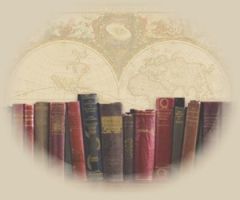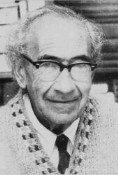Excerpt from Herzl Institute Pamphlets (2), New York 1958
By Hillel Bavli
The problem of human destiny holds sway in an imaginative work by the American Hebrew poet, now a resident of Israel, Abraham Regelson. Regelson is a poet of visionary speculation, close to the borderland of mythology and reality. The eternal struggle between the forces of creation and destructiveness is primary in his works. It finds the strongest expression in his biblical vision "Cain and Abel".
Cain represents the spirit of adventure. He is the builder, the doer, the civilizer. He symbolizes, as his name indicates, creativeness, acquisitiveness. Abel, on the other hand, symbolizes nothingness, lack of any earthly ambition and activity.
In the struggle between the two Cain is victorious. But the curse of Abel follows him, namely, that all his accomplishments should lead to tragic destruction, which is another version of God's curse mentioned in Genesis: when thou tillest the ground it shall not yield unto thee its strength any more. The curse takes effect after Abel is slain.
Be'er, a mythological figure, Abel's daughter, the beloved of Cain, is her father's nemesis. She, too, like her father, symbolizes nothingness. Whatever Can builds, she destroys. As Cain reaches the heights of his power subduing the entire universe making his abode in one of the planets, she applies her weird power of destruction. She upsets the heavenly bodies and brings the world close to ruin. Her triumph, the triumph of Abel's spirit, is almost complete but for one small atom which escaped her attention. Out of this remaining atom the world is recreated. The spirit of life, of creativeness is supreme in the end.
This work, bearing marks of English nineteenth century poets, abounds in scenes of vigorous beauty. There is the opening scene of old Adam leaning against a rock like a tottering giant, conscious of his approaching end while his two sons, the titans, are disputing. Equally magnificent are Cain's eloquent hymn to the spirit of conquest and human ingenuity and the horrible vision of the sudden cataclysm, of the ruined universe. A somewhat primitive rawness of style lends an archaic touch to a modernized interpretation of ancient lore.
|



